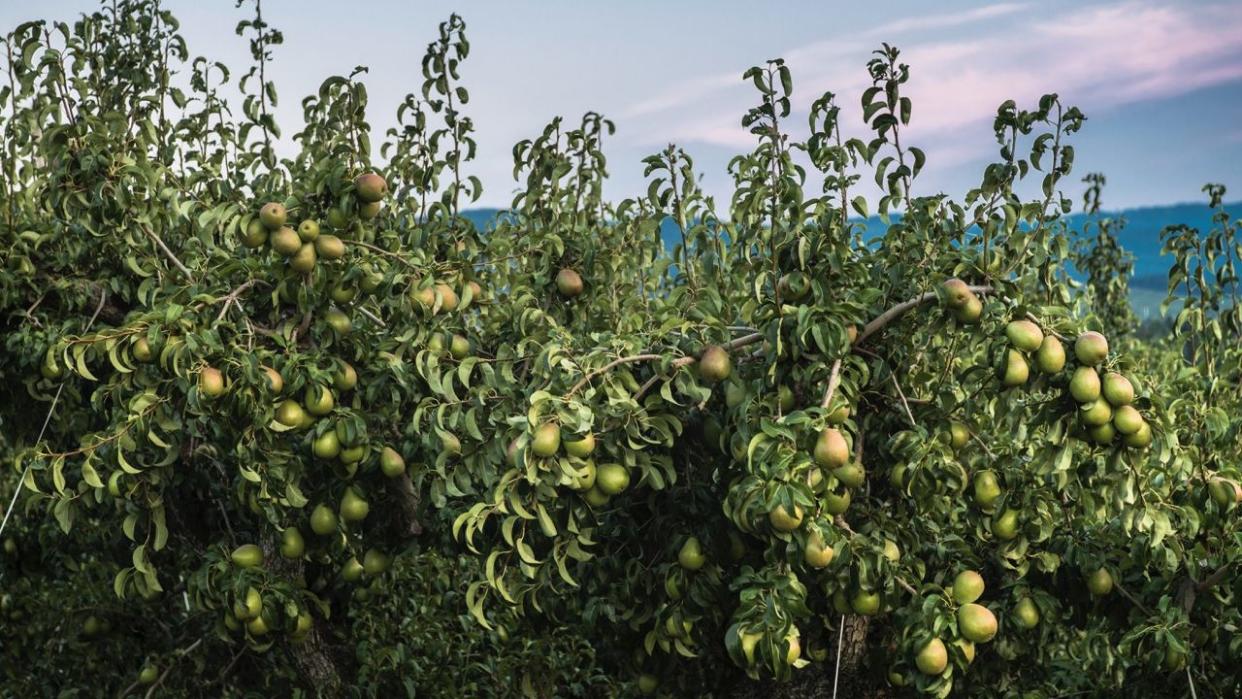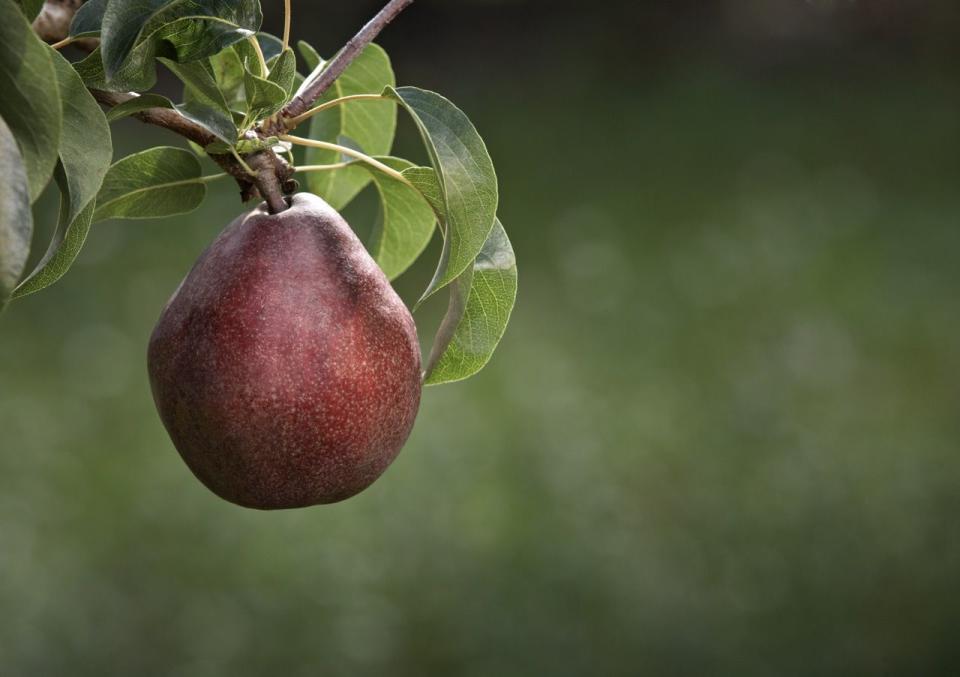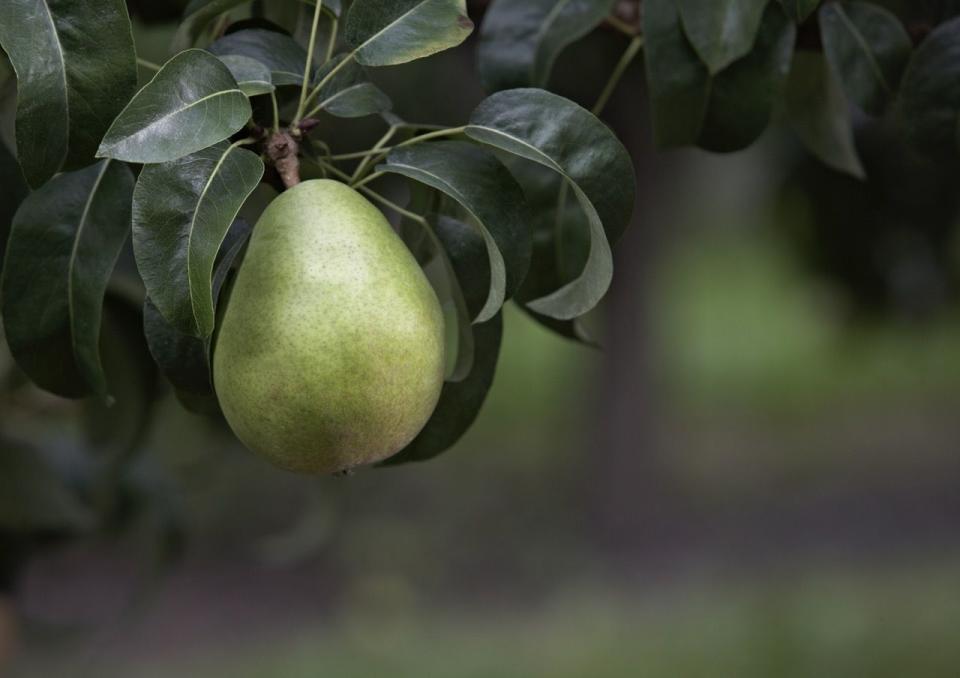Add To Cart: Loads Of Anjou Pears

Despite its sweet flavor and superb nutritional profile, the humble pear has never gotten the attention it deserves. Which is puzzling on the face of it: The fruit is convenient to eat out of hand, and also works well in both sweet and savory cooking and baking. Here are our takes on why it deserves a place on your grocery list.
1. There are 10 varieties of USA pears to choose from.
When you think of pears, the Bartlett, with its long neck and soft flesh, probably comes to mind first. But there are many other types, ranging from crisp to soft, and spanning the full spectrum of sweetness. For instance, the next-most-popular variety is the Anjou, which comes in green and red. Both options are a bit firmer than the Bartlett and a little less sweet.

2. Pears are snacking superstars.
For those seeking a nutritious snack, pears are a good source of fiber, with about 6 grams (that’s about 21 percent of the recommended daily intake), and have around 100 calories per medium-size fruit. When paired (pun intended) with cheese or a nut butter, they make up a well-rounded repast that will keep you satiated for a while.
3. They contain prebiotic fiber, needed for gut health.
While you might be familiar with soluble and insoluble fiber, let us introduce you to prebiotic fibers. They’re compounds that can shape your microbiome by functioning as a carbon source for beneficial bacteria. Pears, including spring Anjous, can help you get that prebiotic fiber in.
Pick Your Perfect Pear
When choosing a pear, apply gentle pressure on the neck, near the stem. If it yields, the fruit is ripe and ready to eat, even if the bottom doesn’t feel quite as soft. Unripe pears should be left at room temperature near other pears, apples, avocados, and/or bananas. These fruits all release ethylene gas, which acts as a plant hormone that causes genes in surrounding fruit to speed up the ripening process. Once the pear is ripe, place it in the refrigerator to delay the process from there and help them last longer.
4. They provide vitamin C.
This vitamin is vital for normal metabolism function, tissue repair, immune function, and protection against viruses and infectious diseases. And one medium-size pear contains 8 percent of the recommended daily value.
5. They bake so well.
Pears are hearty and sweet enough to be the star of any dessert. Anjous in particular are able to withstand baking, grilling, poaching, or roasting, thanks to their dense flesh.

6. Pears may help maintain healthy blood-sugar levels.
Because the naturally occurring sugars found in the fruit are balanced with vitamins, minerals, water, and fiber, eating them doesn’t spike your blood-sugar levels like other sweet treats can. This makes them a solid addition to your diet, especially if you have diabetes or other blood-sugar issues.
7. They are available all year round.
You might think of pears as fall fruit, but that isn’t actually the case. No matter the time of year, there’s always a variety of USA pears available, just waiting to be placed in your shopping cart.
You Might Also Like


